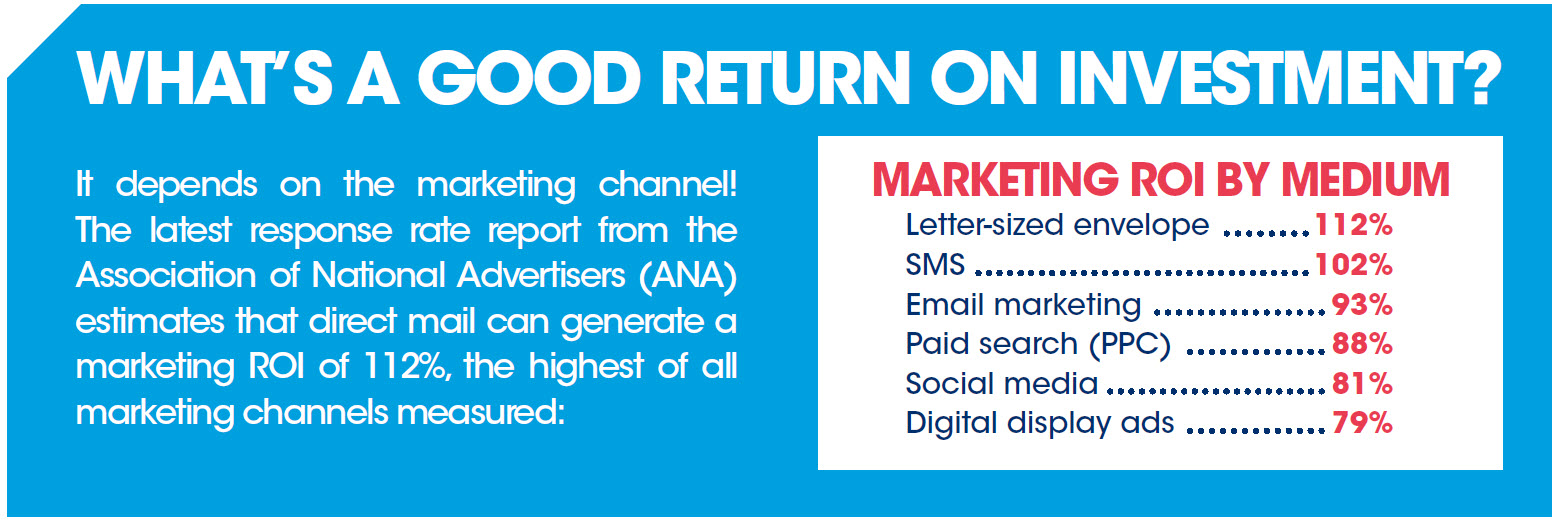Questions to Ask at Any Time
New business owners and established small businesses alike can benefit from advertising. Whether trying to reach a small number of potential customers or spread your message to a large audience, various lead-generation solutions can fit your unique needs and budget. Creating a strategy for advertising can be daunting, dizzying, and takes a lot to manage, especially if you’re new to it. To get started, ask yourself these 5 questions:
- What’s your objective?
What do you want to get out of advertising? More customers?
Better jobs? Brand / location awareness? - What’s your message?
What makes your business unique?
Which products or services are your most popular? Any upcoming events? - Who’s your core customer?
Where do they live? What do they like?
How much do they spend on what you sell, and how often? - How will you define success?
A high response rate or return on ad spend?
New customers or an overall lift in sales? More phone calls? - How much are you willing to spend?
The U.S. Small Business Administration recommends
7-8% of gross revenue for small businesses
Download a free marketing plan template to help build your next campaign

How to Measure Measure Advertising Response
Yes, increasing revenue or customers is a sign of success, but sometimes there is more to it. A smart business owner will look under the hood, utilize available tools, and take a more thorough look at the various available tracking methods to gauge a more precise measure of how their ads are performing.
Test Your Ads
Practice, or testing, makes perfect. You want your ads to resonate with audiences, but first, you must understand what’s resonating. While advertising should not stop, reviewing and analyzing the messaging you share on various channels should not stop either. Understanding what is hitting and getting reactions and better engagement from your audience can help you optimize your future campaigns.
Key Performance Indicators
One of the core needs of an advertising strategy is the ability to measure success. You need to identify the key performance indicators (KPIs) that put your campaign results into perspective. KPIs are metrics that help ensure your marketing is going in the direction of your goals. For example, if you include a coupon code on your ad you should track each time that code is used and how (in store, online, mobile). Similarly, use QR codes and measure scans or a unique phone number and track calls in response to your campaign. Monitor website traffic, search result placement and social impressions throughout the life of your campaign. Are you seeing a lift? Did your average order value or basket size increase? There are hundreds of KPIs to measure based on your business category and advertising goals. But any campaign you run should generate a positive return on investment.
Marketing ROI Calculator
Marketing campaign costs are an investment in your business. When you examine the success of your marketing activities, return on investment is a key performance indicator (KPI) / marketing metric. Your goal is to recoup the amount of money you spend – and then some. Beyond a good return, your marketing efforts should also build brand awareness, gain subscribers (depending on the marketing channel), increase conversion rates and drive sales.
The basic formula for marketing ROI is MARKETING REVENUE – MARKETING SPEND / MARKETING SPEND X 100. You can take this marketing ROI formula further by considering other variables that impact net profit such as cost of goods sold (COGS) or by measuring customer lifetime value (CLV). Use this marketing ROI calculator (basic formula) as a tool to measure the value of your marketing investment.

Why Advertising Works
It’s no mystery anymore that advertising is a wise investment for any size business. All around the world, companies are spending more and more on advertising—last year, almost $733 billion on it. By the end of 2024, that number is projected to exceed $1.75 trillion.
Whether opening a new business, expanding, or promoting a new product, advertising through the proper channels to get your brand out there is paramount to success. To achieve your advertising goals, you must elevate your brand exposure, build your customer base and stay ahead of the competition. In addition, you must constantly drive business growth and amplify your marketing to reach the right audience with strategic messaging that converts potential customers into loyal customers. And thankfully, today, there are many options for budgets of all sizes to take advantage of the various advertising resources available.
The story of a business’s success often reflects the marketing plan they deploy. No matter how great the services or products a business provides, people must be aware of them, or they will sit on the proverbial and literal shelves (in some cases).




